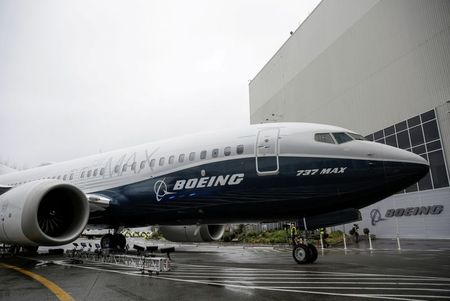Boeing shares nosedive after 737 Max blowout incident as rival Airbus’s increase

Boeing shares plunged on Monday amid the ongoing fallout from last week’s Alaska Airlines flight blowout, which has grounded hundreds of 737 Max-9 planes.
Shares in the Nasdaq-listed planemaker fell more than eight per cent in pre-market trading as investors fretted over the impacts of Boeing’s latest 737 Max fiasco.
A section of an Alaska Airline plane’s fuselage fell off at nearly 16,000 feet in the air last Friday, leaving a gaping hole in the aircraft and forcing an emergency landing. No one was badly injured in the incident but it has resulted in the grounding of hundreds of Boeing jets amid a probe from US Federal investigators.
The incident has shattered Boeing’s reputation after a string of catastrophes involving the 737 Max in recent years.
In 2018 and 2019 two crashes attributed to faulty cockpit software caused the death of 346 passengers and grounded the jets worldwide.
More recently, the 737 Max has been hit by a string of production glitches, which have cast a cloud over the planemaker’s financial results by lowering annual delivery targets.
“Safety is of paramount importance in the aviation sector and airlines using 737 Max planes will be thinking long and hard about their future aircraft requirements and how Boeing might play a smaller role, or none at all,” Russ Mould, investment director at AJ Bell, said.
Shares in Boeing’s arch rival Airbus, which is the world’s biggest planemaker, rose nearly two per cent today in contrast.
After 737 Max jets were grounded in 2019, Boeing shares fell a collosal 40 per cent, while Airbus jumped by 25 per cent. Morgan Stanley have forecast a quick resolution to the current grounding, attributing it to a manufacturing issue as opposed to a flaw in the design.
“Boeing’s management will be under considerable pressure from the regulators and customers to explain what’s going on, which means considerable headwinds ahead for the business. It’s no wonder investors have raced to sell the shares as the risks to the investment case have just shot up,” Mould added.